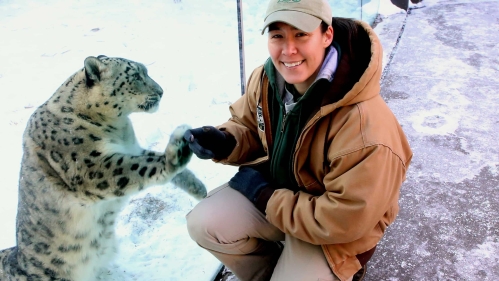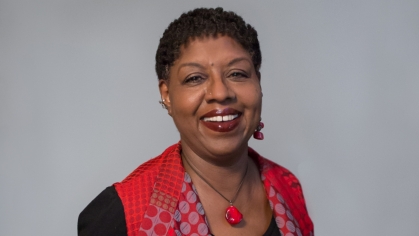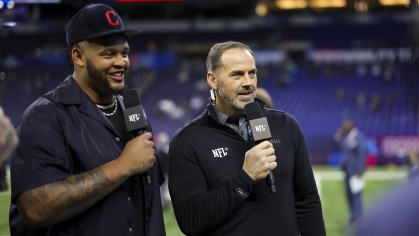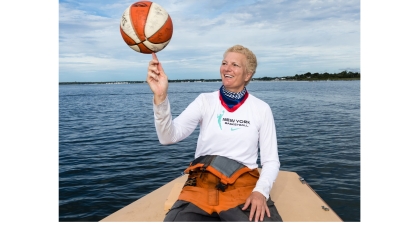The Keeper of the Big Cats at the Philadelphia Zoo shares how she found her calling and her second family.
If you have pets, you know what it can be like taking them to the veterinarian. Stressful, even terrifying, sometimes traumatic. It’s hard on the pets, too.
Still, as far back as she can remember, Jen Robertson always knew she wanted to work with animals, to make them her life’s work. She assumed that meant she would become a veterinarian.
After graduating from Rutgers with her bachelor’s degree in animal science, Robertson CC’97 decided to take a year off before pursuing veterinary school and work at Lion Country Safari in south Florida. She got to see animals’ natural behaviors and bond with them. That’s when she realized that the zoo was where she needed to be. Rather than working with injured and sick animals, she wanted to build relationships with them. Now they are her family.
In her own words, Robertson tells how she chose the path that led her to become the keeper of the Big Cat Falls exhibition at the Philadelphia Zoo, a path that started at Rutgers.
This is my love—working with wild animals
My time at Rutgers exposed me to different facets of animal care. At that time, people thought your only choice with an animal science degree was [to be] a veterinarian. That was my plan. It didn’t even cross my mind to be a zookeeper.
Right on campus, there are these farms that offer hands-on animal courses, which I love, because my best method of learning is by doing. It wasn’t just, OK, here’s your textbook. It was real-life experiences.
I got to work with dairy cows, and I got to see newly born piglets. I also got to take home and bottle feed a little lamb for a weekend.
Never in my wildest dreams did I think I’d work with big cats. But when I started as a zookeeper, my first job was with chimpanzees. From there I moved to pachyderms, hoof stock, giraffes, and then big cats. It was like, wow, this is my love—working with wild animals.
As keepers, we’re family to the animals. We’re the ones who provide them with everything they need. We make sure they’re happy, they’re comfortable. I fell in love with the behavioral aspect of animals more than the medical stuff.
Professor Aparna Zama likes to bring in speakers with animal science degrees, in different professions. So, I give a presentation to Rutgers students on being a keeper. I see their eyes light up when I share pictures of the cats. I get a lot of, How do you get into the field?
To me, it doesn’t feel like a job
I have a lot of friends in the field who have left because of the long hours. We’re here holidays, weekends—it’s a demanding job. But the animals don’t know it’s Christmas. They don’t know it’s Thanksgiving.
Fortunately, for me, my husband works in the same field also, so he gets it. But my other family members are like, Why can’t you work with something that’s not going to kill you, like butterflies?
I love what I do. To me, it doesn’t feel like a job. I’m lucky in that way.
Where do I see myself in ten years? Still here, working with the cats. I can’t see myself leaving them. We do have some geriatric ones who are not going to be alive in another 10 years, maybe not even next five, but that’s the circle of life. Maybe they’ll have cubs or we bring in different animals and just keep going
Burnout does happen, but the cats still put a smile on my face. I know I am where I belong.
I would just say, follow your dreams. Just be happy. I know I’m not going to get rich off this job, but I’m rich in other ways. I’ve got these great cat family members.
What I Know Now features prominent alumni reflecting on their careers and their time at Rutgers while offering their insights and advice to current students and recent grads. They focus on life lessons—identifying what's important and maintaining a healthy balance. And, of course, finding personal success.



